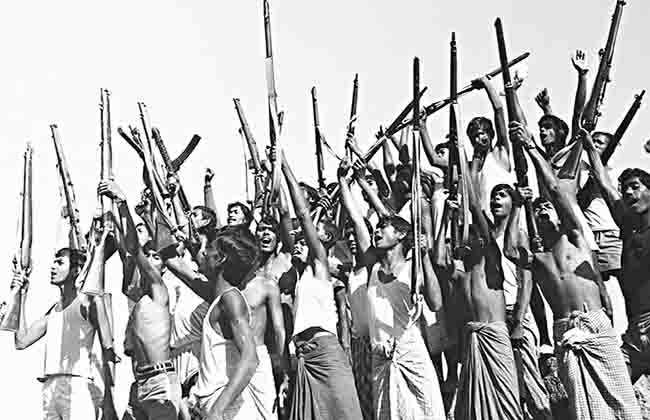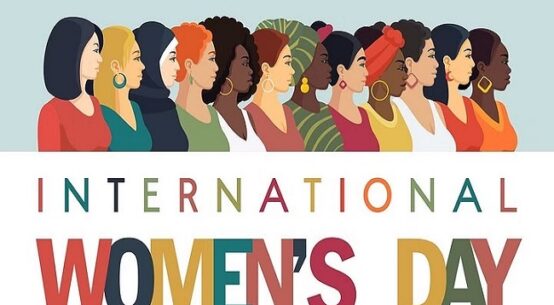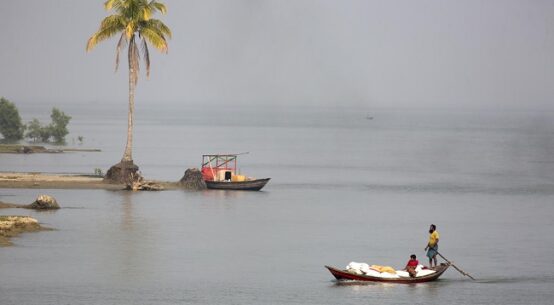
There are certain interests that keep me going. And they all have to do with politics, with foreign affairs, indeed with specific countries and regions. That is how my interest in Africa, in American foreign policy, in the survival of Indian democracy keeps growing. One of my abiding interests is Pakistan, which I observe intently not merely because of the war of 1971 but because of the changing nature of life and politics in Pakistani society as well. Besides, there is a bit of the personal as well in my studies of Pakistan. I spent nearly the first seventeen years of my life there.
Today, a half century after the emergence of a sovereign Bangladesh, my thoughts are basically focused on a programme presented by the well-known Hamid Mir on Pakistan’s Geo TV some years ago. I am quite certain the Pakistani electronic media as also its print media will once again, on this 50th anniversary of Bangladesh’s freedom, be speaking about the war of 1971 in their own fashion. The programme I refer to, however, was on the surrender of Pakistani forces in Bangladesh on 16 December 1971 and was obviously prepared to be aired on 16 December that year. Understandably, though, the carnage wrought by the Tehreek-e-Taliban Pakistan in Peshawar at the time led to a postponement of the telecast of the programme on Bangladesh. When it finally came on a few days later, I watched it with interest, knowing that Hamid Mir is one of those Pakistanis who have tried to understand the reasons why Pakistan lost the 1971 war. I might add here that on one of my visits to Pakistan many years ago, I was a talk show guest of Hamid Mir’s at Geo. But that had to do with what we euphemistically describe as the SAARC spirit.
Be that as it may, of the December I speak of, I was intrigued by the way Mir presented his take on Bangladesh 1971. He did not bring any Pakistanis linked to 1971 to his programme, but he did produce snippets from some of his earlier programmes where such prominent Pakistanis as GauharAyub Khan, the son of Field Marshal Ayub Khan and once Pakistan’s foreign minister, came in with some new insights on the fall of Dhaka. If GauharAyub is to be believed, sometime in April 1971 — and that was a few weeks into the Pakistan army’s brutal military operations in East Pakistan — Agha Mohammad Ali Khan, brother of Yahya Khan, arrived at Ayub Khan’s home. He had been sent by his brother to ask the former military ruler for advice on what ought to be done in East Pakistan. Ayub’s response was telling. He told his visitor to go and tell Yahya Khan that the damage had already been done by the army and that the only thing that remained was for the soldiers to be brought back to West Pakistan and have the regime negotiate a confederation, not a federation, with the Bengali political leadership. That way, Pakistan could somehow survive as an entity.
That was one redeeming feature of Hamid Mir’s programme on the Bangladesh issue. But then came the disappointment. He noted at one point that the activities of Bangladesh’s Mukti Bahini were the first instance in what would in subsequent years come to be regarded as cross-border terrorism. There was a typical Pakistani attitude to political realities there. Mir was clearly confusing Bangladesh’s War of Liberation with the terrorism the Pakistan military had been promoting in South Asia as also the medieval acts of the various Taliban and al-Qaeda outfits in Pakistan itself. It was surprising how Mir failed to acknowledge the role of Bangladesh’s freedom fighters in its proper perspective. Besides, throughout the programme, he kept his focus on why and how the Pakistan army was defeated, despite their ‘bravery’ and ‘gallantry’. One would think, having watched the programme, that the army had been the victim of a vast conspiracy. Mir mentions at one point that the Pakistan army had lost the support of the local population, but carefully stays away from making any reference to the genocide the soldiers committed in Bangladesh — the very reason why the army had turned into an enemy occupation force. There are reasons behind an army’s losing public support. Mir did not go into that discussion. In the course of his assessment of the 1971 war, Mir quotes from several books, which he had before him, on how Pakistanis have looked at the military surrender in Dhaka. Quite a few people came on the show (again, clips from earlier shows), stating clearly that where Yahya Khan had asked General Niazi to go for a cease-fire, the latter had opted for surrender. These people were obviously divorced from reality.
Imran Khan (and he was yet to be prime minister) came on the show, which again was footage from an earlier programme, to state clearly that what the Pakistan army did in Bangladesh was morally and politically wrong. His is one of the saner voices which have been heard in Pakistan in relation to the 1971 war. But, then, Mir quite marred his presentation when he hadSarmila Bose, author of the controversial book ‘Dead Reckoning’, again mouth the lies she peddled in her work. And, yes, Mir kept on speaking of the general elections of 17 December 1970 when the actual date of the elections was 7 December 1970. He made another mistake when he informed his viewers that while the war was going on, Yahya Khan asked Z.A. Bhutto to return from New York, where he had been presenting Pakistan’s case before the UN Security Council, to Rawalpindi. The fact is that Bhutto was called back only after the army had surrendered in Dhaka. He returned to Rawalpindi on 20 December 1971 and was sworn in as president and chief martial law administrator of whatever remained of Pakistan the same day.
And, here’s the final point: at no point on the show did Hamid Mir make any reference to the ten million Bengalis forced to take refuge in India during the nine months of Bangladesh’s War of Liberation. Neither did he mention the crisis as it was precipitated by Bhutto’s refusal to take part in the national assembly session scheduled for early March 1971 in Dhaka. Nothing was said about the tens of thousands of Bengalis killed by the Pakistan army. That Pakistan’s soldiers, in the name of Islam, went on an orgy of raping Bengali women, always in gangs, drew not a word.
Syed Badrul Ahsan is an independent journalist and biographer


